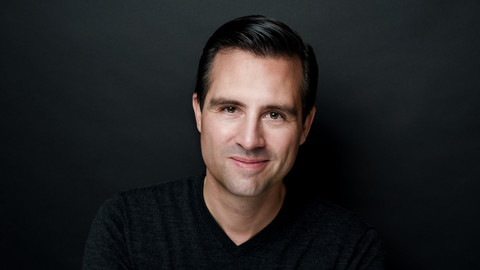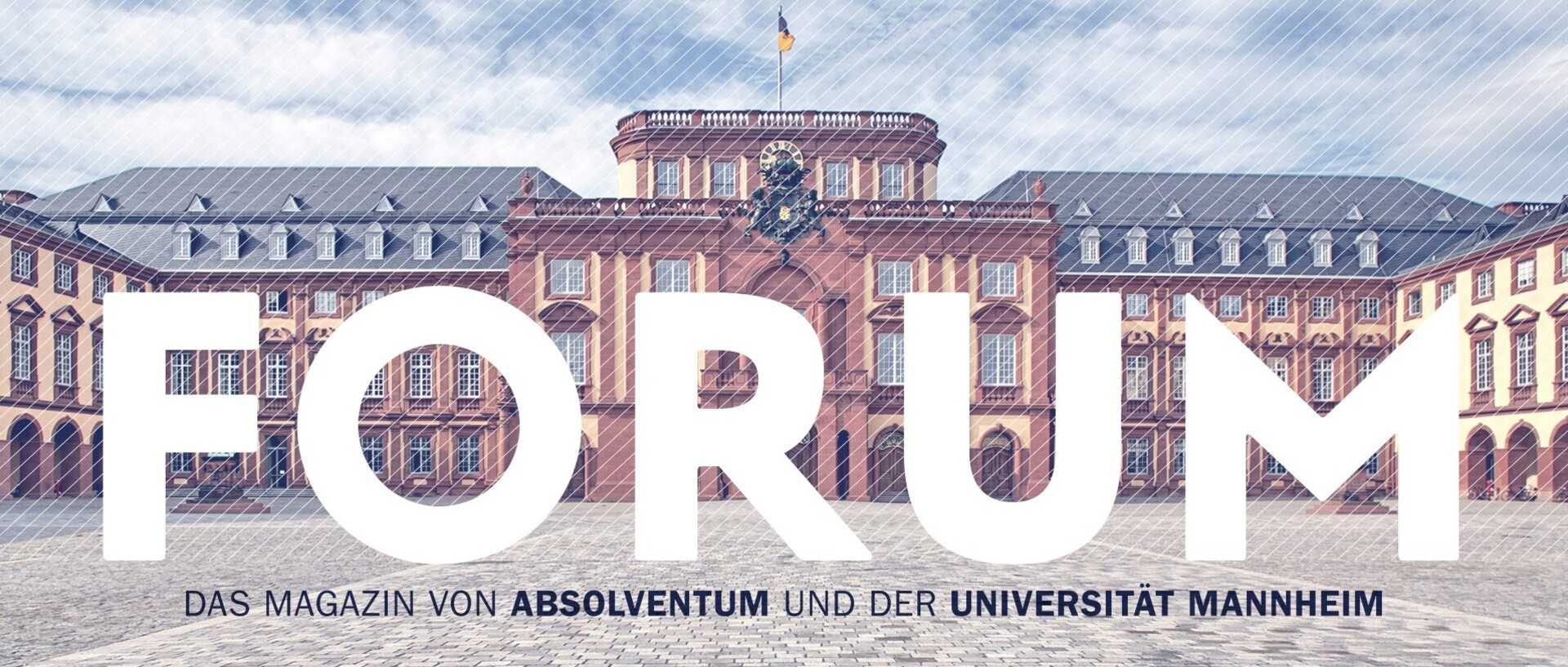Catching Up with … Dominik Winterling
It is 2005 and Dominik Winterling is hurrying across the Ehrenhof to get to his courses at Mannheim University of Music and Performing Arts on time. The short, now-familiar route from one grand old building to another takes him just a few minutes. Instead of the numbers and marketing techniques that normally whirr through the business student’s head, he is thinking about clefs, musical theory, and harmonics. Almost two decades later, Winterling’s life is still defined by these two passions. Following posts at the Heidelberger Frühling festival and the Elbphilharmonie concert hall, he is now Managing Director of the Royal Concertgebouw Orchestra in Amsterdam, where he continues to straddle the worlds of business administration and music.

It all began when Winterling was just five years old. That was when he started piano lessons with his mother and discovered his talent for the instrument, as well as a passion for classical music and song. The spark was quickly kindled, and it soon became clear that he ought to attend a specialist music school after finishing elementary school. The chosen music school was the Regensburger Domspatzen Academy, where Winterling remained until the end of his secondary education. During his time with the Regensburger Domspatzen, the world’s oldest boys’ choir, he travelled to many countries, with the choir’s international concert tours in the summers taking him to places such as Japan, Hong Kong, and Korea. Winterling still has fond memories of his exciting, varied experiences in Regensburg and around the world.
After spending a year abroad in the UK, graduating from school, and completing military service, he opted to study business administration at the University of Mannheim.
“My background definitely influenced my choice. My family has a business going back several generations, so I was familiar with the subject matter of business administration and the many different opportunities a degree in the field could bring.” Looking back, Winterling is still very happy he chose to study at Mannheim, as is also evident from his longstanding membership in ABSOLVENTUM. He explains that his degree did not just prepare him for his later working life; the university’s interdisciplinary approach also offered him opportunities to broaden his horizons, which he found very inspiring. The degree program Business Administration with IQ (like with today’s BA in Culture and Economy, the IQ stands for “intercultural qualification”) allowed Winterling to study French and take courses from a whole range of subjects. He was also able to complete the dual-degree program that Mannheim runs in partnership with ESSEC in Cergy-Pontoise. Winterling cherished all this variety. And his education would only go on to become more diverse: After the first semester, he missed music so much that, despite all the difficulties, he began studying to be a concert pianist at the University of Music and Performing Arts. He was one of the first students to take degrees at both Mannheim institutions at once.
Winterling does not deny that it was a lot of work. But fortunately, the practice required for his musical studies was a pleasure rather than a chore, and he relished being able to pursue his greatest passion. He found it highly enriching to live in these two completely different worlds. From a very early stage, he was determined to find a job that matched his interests and passions, one that he could feel invested in. That way, enjoyment, dedication, and motivation would come automatically – and with them success. “I always knew I wanted to do something with music. But only a few people get to actually pursue a musical career. So the combination of music and business administration was perfect.”
He was able to combine business administration with a job in the music industry right from the start of his career. After graduating in 2006, he joined the team of the international music festival Heidelberger Frühling, where he developed a marketing and communication strategy from scratch and brought in a management reporting system. Two years later, he was appointed Head of Artistic Planning. This opportunity to shape Heidelberger Frühling’s artistic profile and work closely with musicians from all over the world is something that Winterling still benefits from to this day. “I met people whom I still regularly cross paths with in Amsterdam today. I learned a huge amount. I’d say that my work for Heidelberger Frühling was where it all began, including the network I’ve built up over the course of my career.”
Between his time in Heidelberg and his current role in Amsterdam, he spent several years in Hamburg, where the still-unfinished Elbphilharmonie concert hall was attracting a lot of criticism. Winterling understood the criticism, but always countered it with a positive attitude: “I always knew that the Elbphilharmonie would be a huge success despite all the difficulties, because the concept behind it was, in my view, spectacular.” So he did not hesitate to accept a role as Head of Development at the Elbphilharmonie Foundation in Hamburg. In the two years prior to the concert hall’s opening, he had to help secure long-term sponsors and donors and prepare a whole season of music. Winterling describes this period as “an intense race against time,” but also “an experience from which I learned a lot” – and one which ended in resounding success.
This success did not go unnoticed, and in the middle of the pandemic Winterling was contacted by a headhunter regarding a post at the Royal Concertgebouw Orchestra in Amsterdam, one of the world’s leading symphony orchestras, which was granted Royal status by Queen Beatrix. “If I’m honest, I was rather awestruck by the orchestra. But nothing in life is without risk and it’s the big challenges that allow us to grow and develop.” As Managing Director, it is now the orchestra he is responsible for helping to grow and develop. Winterling is in charge of strategy, which includes exciting musical education projects for kids and “cross-over” projects distinct from the orchestra’s classical concerts. His goal is to preserve the cultural heritage of classical music while also bringing it into the present day and making it accessible to a wider audience, for instance with public open-air concerts or interesting workshops. As a business administration graduate, his ability to understand the needs of the orchestra and its sponsors from a business perspective and harmonize them with artistic objectives is a big help in achieving this goal. Winterling also helps organize the orchestra’s tours and accompanies it to concert halls all over the world, in countries including the U.S., the UAE, Japan, and Korea. In the future, he hopes to be able to tour countries where classical music is less widely accessible. “I could imagine going to South America, for instance. But that’s all still very much up in the air – ‘music of the future,’ as we say in German.”
Text. Selina Supper / October 2022
